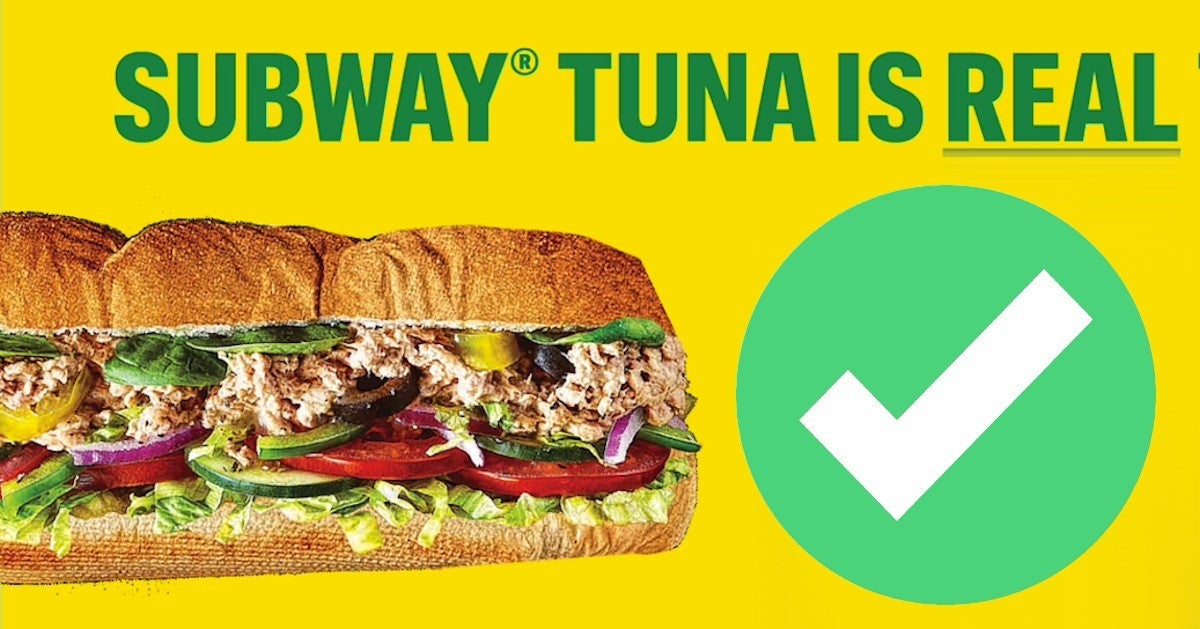Subway has launched a new website defending its tuna as being… real, actual, tuna. Titled “subwaytunafacts.com” this all-too-serious site actually offers consumers scientific (sounding) refutes of recent reporting that Subway tuna can’t be identified as actual tuna meat after research studies were done. In the opening statement to the website, Subway comes out swinging with the bold proclamation that, “SUBWAY® TUNA IS REAL TUNA.
That’s right. The truth is, Subway uses wild-caught skipjack tuna regulated by the Food and Drug Administration (FDA). A favorite among sub lovers, our tuna is and has always been high-quality, premium and 100% real.”
Videos by ComicBook.com
Subway has been mired in controversy over the last few years, regarding the quality of its sandwich components. It became a viral headline when the Supreme Court of Ireland ruled in 2020 that Subway’s bread had too much sugar in it to be considered bread, by the country’s standards. Early this year, a lawsuit was filed by two Bay Area residents, alleging that Subway’s tuna isn’t fish, but rather, a mixture of various concoctions that do not constitute tuna, yet have been blended together by defendants to imitate the appearance of tuna.” That suit was based on independent lab tests done on the plaintiffs’ behalf, using “multiple samples” of Subway tuna from various restaurant locations in California.

After the story of the lawsuit broke, NYT did its own independent study of Subway tuna, and got lab results that also found major discrepancies with the material that Subway is selling as “tuna.” Now it’s clear that Subway is desperate to do some damage control on this latest “controversy” over its brand, by putting out its own set of “facts” about the tuna in its restaurants:
“The New York Times test results only show that the type of DNA test done by the unnamed lab wasn’t a reliable way of determining whether the sample was tuna or not” The “Tuna Facts” site explains. “If the test had confirmed the existence of a protein other than tuna, questions could have been raised. However, their “non-detect” conclusion really just means that the test was inadequate in determining what the protein was. In other words, it was a problem with the test, not the tuna.”
Subway points consumers to check out USA Today’s independent fact-check, which allegedly finds that the NYT study “lacked important context about the limitations of DNA testing of denatured proteins… The challenge of accurately testing processed tuna DNA has been known for a while, and even studied by scientists.”
There’s even some colorful infographic work on the site to help you get visual reassurance that Subway tuna is indeed real.
While it’s fine and fair for Subway to launch its own defense of its tuna “meat,” this is also one of those situations where having to mount this defense at all is already something of a loss. No matter how good of a website Subway puts up, the “urban legend” of Subway’s questionable tuna meat will loom much larger in infamy.
Will you still be ordering Subway tuna subs, after this?








